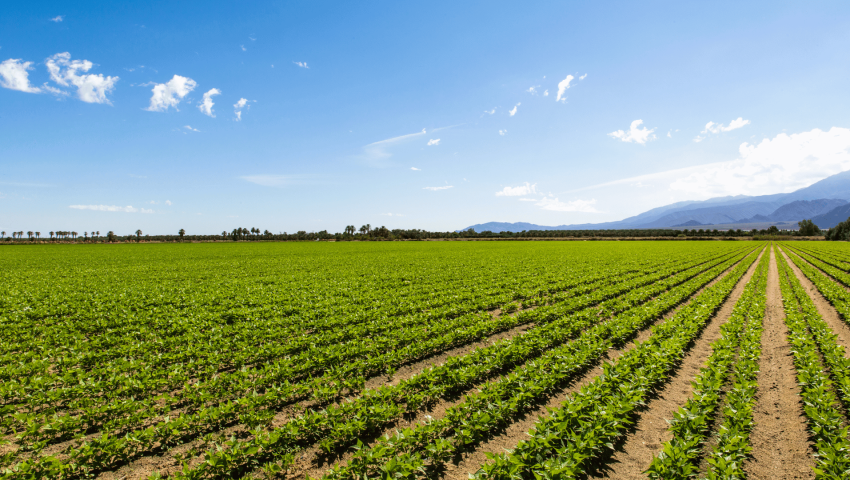
Tailored Workforce Solutions for Queensland Farms
Discover comprehensive workforce solutions designed specifically for Queensland's diverse agricultural sector. From tropical fruit orchards to cattle stations, learn how to optimize your farm's labor needs with innovative recruitment strategies, seasonal workforce management, and compliance solutions tailored to Queensland's unique farming landscape.
“Customized workforce solutions are essential for meeting the unique challenges faced by Queensland farms, ensuring productivity and growth in the agricultural sector.”
Understanding Queensland's Unique Agricultural Landscape
Queensland's agricultural sector is as diverse as its geography, presenting unique challenges and opportunities for workforce management. From the tropical fruit orchards of the Far North to the expansive cattle stations of the Outback, each region requires tailored approaches to staffing and labor solutions.
Key aspects of Queensland's agricultural landscape include:
Climatic Diversity:
- Tropical and subtropical regions in the north
- Arid and semi-arid areas in the west
- Temperate zones in the southeast This diversity creates a year-round demand for agricultural labor, with different peak seasons across the state.
Crop Variety:
- Sugar cane in coastal areas
- Tropical fruits in the north (bananas, mangoes, avocados)
- Grain crops in the Darling Downs
- Vegetables in the Lockyer Valley Each crop type requires specific skills and labor intensities at different times of the year.
Livestock Industry:
- Extensive cattle grazing in central and western regions
- Intensive animal production (poultry, pigs) near urban centers Livestock operations often require year-round staffing with specialized skills.
Seasonal Fluctuations:
- High demand for harvest workers in fruit and vegetable sectors
- Cyclical needs in the sugar industry
- Year-round but varying needs in livestock farming Managing these fluctuations is crucial for efficient workforce planning.
Remote and Rural Challenges:
- Vast distances between farms and urban centers
- Limited local labor pools in many agricultural regions
- Challenges in providing accommodation and services for workers
Natural Disasters and Climate Events:
- Cyclones in the north
- Droughts in inland areas
- Flooding in coastal regions These events can dramatically impact labor needs and agricultural operations.
Technological Advancements:
- Increasing adoption of precision agriculture
- Automation in some sectors (e.g., sugar cane harvesting)
- Need for tech-savvy workers alongside traditional farm laborers
Understanding these unique aspects of Queensland's agricultural landscape is crucial for developing effective workforce solutions. It requires a flexible approach that can adapt to the diverse needs of different regions and agricultural sectors while addressing the challenges of seasonality, remoteness, and climatic variability.
Innovative Recruitment and Retention Strategies for Queensland Farms
Addressing the workforce needs of Queensland's diverse agricultural sector requires innovative approaches to recruitment and retention. Here are key strategies tailored to the state's unique farming landscape:
Targeted Local Recruitment:
- Partner with regional TAFE institutions and universities offering agricultural programs
- Engage with high schools to promote agricultural careers and offer work experience opportunities
- Utilize local media and community networks to reach potential workers in rural areas
Seasonal Worker Programs:
- Leverage the Pacific Australia Labour Mobility (PALM) scheme for consistent seasonal labor
- Develop relationships with Pacific Island communities for recurring seasonal work
- Create comprehensive induction programs tailored to Queensland's farming practices
Working Holiday Maker Engagement:
- Promote Queensland's diverse agricultural experiences to backpackers
- Offer incentives for completing full harvest seasons (e.g., end-of-season bonuses)
- Provide opportunities to experience multiple farm types or regions within Queensland
Digital Recruitment Platforms:
- Utilize social media and online job boards specific to agricultural work
- Develop a farm-specific app or website showcasing job opportunities and farm life
- Implement virtual farm tours and online interviews for remote candidates
Cross-Sector Collaboration:
- Partner with tourism operators to offer 'farm stay' experiences combined with work opportunities
- Collaborate with other industries (e.g., hospitality) for off-season employment options
- Develop skills-sharing programs with other agricultural sectors for year-round employment
Innovative Retention Strategies:
- Implement a 'Farm Passport' program, encouraging workers to gain experience across different Queensland farms
- Offer professional development opportunities, including certificates in farm operations or machinery use
- Create mentorship programs pairing experienced farmers with new workers
Accommodation and Lifestyle Solutions:
- Develop high-quality, affordable housing options for farm workers
- Offer 'outback experience' packages as part of employment to attract adventure-seeking workers
- Facilitate community integration through local events and cultural activities
Skills Development and Career Progression:
- Create clear career pathways from entry-level to management positions
- Offer cross-training opportunities in various aspects of farm operations
- Provide language and cultural training for international workers
Technology-Driven Workforce Management:
- Implement workforce management software for efficient scheduling and communication
- Utilize GPS and mobile apps for remote work coordination
- Offer training in agtech and precision farming to attract tech-savvy workers
Flexible Work Arrangements:
- Develop job-sharing options for roles suitable for part-time work
- Offer flexible hours or compressed work weeks where possible
- Create remote work opportunities for suitable positions (e.g., farm administration)
By implementing these innovative strategies, Queensland farms can enhance their ability to attract, retain, and develop a skilled workforce capable of meeting the diverse needs of the state's agricultural sector.
Compliance and Support Systems for Queensland's Farm Workforce
Ensuring compliance and providing robust support systems are crucial for maintaining a stable and productive workforce on Queensland farms. Here are key areas to focus on:
Visa Compliance:
- Stay updated on visa regulations specific to agricultural workers
- Implement a system for regular visa checks and renewals
- Provide clear information to workers about their visa obligations and rights
- Utilize the Visa Entitlement Verification Online (VEVO) system consistently
Fair Work Compliance:
- Ensure adherence to relevant awards and pay rates, including piece rates
- Implement transparent record-keeping systems for hours worked and wages paid
- Provide clear, written employment agreements in workers' native languages
- Stay informed about changes to Fair Work regulations affecting agriculture
Workplace Health and Safety:
- Develop comprehensive safety protocols tailored to Queensland's climate and farm types
- Provide regular safety training, including heat stress management and wildlife awareness
- Ensure proper use and maintenance of farm equipment and machinery
- Implement an incident reporting and management system
Cultural Integration Support:
- Offer cultural awareness training for both local and international workers
- Provide language support and translation services where necessary
- Organize cultural events celebrating diversity in the workforce
- Develop mentorship programs pairing local workers with international staff
Mental Health and Wellbeing:
- Implement mental health support programs tailored to rural and remote settings
- Provide access to counseling services, including telehealth options
- Organize regular social activities to combat isolation in remote areas
- Train supervisors in recognizing and addressing mental health concerns
Professional Development:
- Offer ongoing training opportunities in various aspects of farm operations
- Provide pathways for skill certification and career advancement
- Collaborate with agricultural colleges for continuous education programs
- Implement a system for recognizing and rewarding skill development
Accommodation Standards:
- Ensure all worker accommodation meets Queensland's health and safety standards
- Regularly inspect and maintain housing facilities
- Provide clear information about accommodation costs and conditions
- Offer support for workers in finding suitable off-farm housing if required
Transportation and Logistics:
- Implement safe transportation systems for workers, especially in remote areas
- Provide guidance on obtaining necessary driver's licenses for farm work
- Ensure vehicles used for worker transport meet safety standards
- Develop carpooling or shuttle systems for workers without personal transport
Dispute Resolution:
- Establish clear procedures for addressing workplace grievances
- Provide access to independent mediation services if needed
- Ensure all workers understand their rights and the avenues for dispute resolution
- Regularly review and improve dispute handling processes
Community Integration:
- Facilitate connections between farm workers and local communities
- Organize community events that include both workers and local residents
- Provide information about local services, amenities, and recreational opportunities
- Encourage worker participation in local volunteer activities or community groups
By focusing on these compliance and support areas, Queensland farms can create a more stable, satisfied, and productive workforce. This comprehensive approach not only ensures legal adherence but also contributes to the overall wellbeing of workers and the sustainability of the agricultural sector in Queensland..

MYHRLINK Queensland Farm Solutions
Tailored workforce management for Queensland farms. From recruitment to compliance, we optimize your agricultural labor needs across the Sunshine State.
- Regional Expertise
- Compliance Management
- Worker Support
Tailored workforce solutions are essential for the success and sustainability of Queensland's diverse agricultural sector. As we've explored, the unique landscape of Queensland farming – from its varied climates and crop types to the challenges of remoteness and seasonality – demands innovative and flexible approaches to workforce management.
The key to effective workforce solutions lies in understanding and adapting to the specific needs of each region and farm type within Queensland. This involves not only addressing immediate labor requirements but also building long-term strategies for recruitment, retention, and worker development. By implementing targeted recruitment strategies, leveraging both local and international labor sources, and creating attractive work environments, farms can build a more stable and skilled workforce.
Moreover, the importance of compliance and worker support cannot be overstated. Ensuring adherence to visa regulations, fair work practices, and workplace health and safety standards is crucial not only for legal reasons but also for building a reputation as an employer of choice. Coupled with comprehensive support systems addressing everything from cultural integration to mental health, these practices create a foundation for a satisfied and productive workforce.
Looking ahead, the agricultural sector in Queensland will likely face ongoing challenges, from climate change impacts to evolving market demands. A well-managed, adaptable workforce will be crucial in navigating these changes. Farms that invest in their workforce – through training, technology adoption, and creating clear career pathways – will be better positioned to thrive in the face of future challenges.
Ultimately, tailored workforce solutions for Queensland farms are not just about filling immediate labor gaps; they're about cultivating a resilient, skilled, and engaged agricultural workforce that can drive the sector forward. By embracing innovative strategies and prioritizing worker wellbeing, Queensland's farms can ensure their continued success and contribution to the state's economy and food security.

